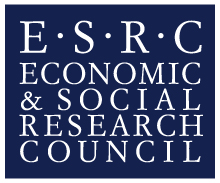Metaphor in end-of-life care (MELC)
General Background to MELC
What is Metaphor?
Metaphor involves talking and thinking about one thing in terms of another. When we say that someone died after a 'battle' with cancer, we talk about being ill and attempting to get better in terms of a military operation. When we say that someone has 'passed away', we talk about dying in terms of going away from where we are.
Metaphors are frequently used to talk about subjective, abstract, complex and/or sensitive experiences in terms of physical, concrete, simple and less sensitive experiences. For example, we talk about our lives in terms of journeys, death in terms of departure, time in terms of space, our minds in terms of machines, and so on. The metaphors we choose both reflect and affect how we 'see' what we are talking about. If we talk about being ill with cancer in terms of a journey, for example, we may see our experience differently than if we talk about it in terms of a battle. Different metaphors may be more or less appropriate for different people, or for the same person at different times.
Why study metaphor in end-of-life care?
Illness, emotions, relationships and death are among the experiences that we often talk about using metaphor. The metaphors we use express, reflect and shape our views, feelings, attitudes and needs. Metaphors can both help and hinder communication, depending on how compatible our metaphors are with those of others, and on how sensitive we are to our own use of metaphor and to the metaphors that are used by other people. The metaphors used by different groups of people in end-of-life care (in our case, patients, family carers and health professionals) can tell us something about their views, feelings, attitudes and needs, and about the extent to which these are similar or different across groups. A better understanding of people's uses of metaphor can help to identify possible sources of misunderstanding, and to improve communication involving members of different groups.
For more general information on metaphor and theories of metaphor please refer to the following:
Cameron, L. and Maslen, R. (eds) (2010) Metaphor Analysis: Research Practice in Applied Linguistics, Social Sciences and the Humanities, London: Equinox.
Goatly, A. (1997) The Language of Metaphors. London: Routledge.
Kövecses, Z. (2010) Metaphor: A practical Introduction. 2nd edition. New York: Oxford University Press.
Lakoff, G. and Johnson, M. (1980) Metaphors We Live by. Chicago: University of Chicago Press.
Semino, E. (2008) Metaphor in Discourse. Cambridge: Cambridge University Press
For a more detailed background to this project, click here

|

|

|

|